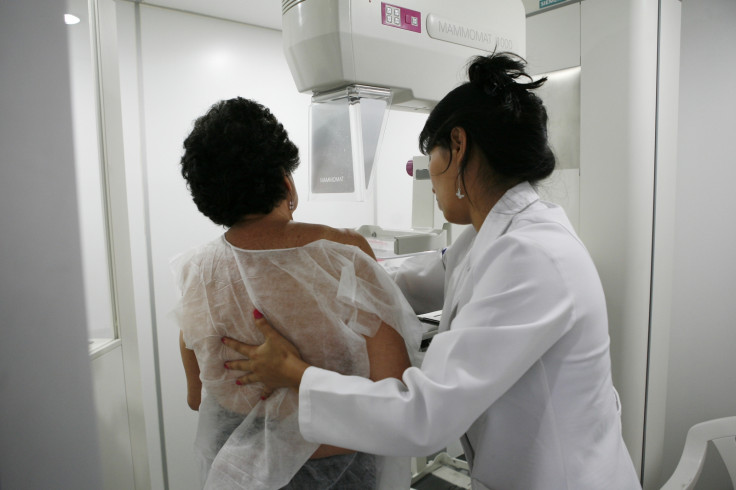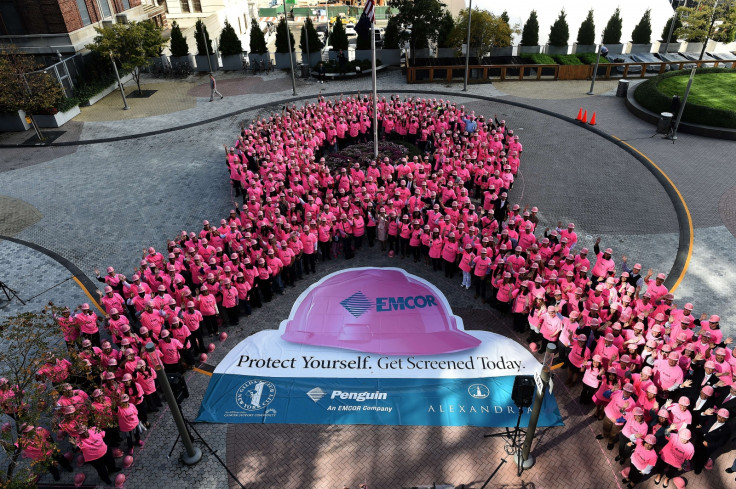World Cancer Day 2015: 'Talk about it' – why breast cancer narratives need to change

Breast cancer is the most common cancer in the UK, with one in eight women diagnosed in their lifetime. But in the past four decades, breast cancer survival rates have been improving and more women are surviving the disease than ever before.
Despite this good news, there is still progress to be made to further improve survival rates. To do so, we need to talk. As with all cancers, breast cancer is a very difficult topic to address and a diagnosis is a life-changing event, evoking feelings of shock, fear and anxiety.
Not everybody wants to talk about cancer but talking to family and friends can help alleviate these feelings and help eliminate fear, stigma or discrimination, which remains a burden in tackling cancers.
Early detection
Negative public perception of cancer can stifle public discussion and perpetuate a cycle of fear and misinformation that hinders raising awareness about cancer prevention and the importance of early detection. Countering cultural barriers against speaking about cancer and contesting misinformation is therefore essential.
Jane, 55, from south-east London, was diagnosed with the early stages of breast cancer after a routine mammogram last June.
I would certainly say talking about cancer is a really good way to encourage women to go for regular mammograms
"I was told bluntly that there was a small tumour and then the consultant went through all the next steps by writing them down on paper in front of me in very simple language," she told IBTimes UK. "I felt relatively calm as I had been given the diagnosis in such positive terms regarding the long term outcome and I held on to that."
"Throughout the four months of treatment, I never let go of that very positive attitude and never had any negative or dark thoughts. That isn't to say I wasn't a bit scared at what lay ahead."
After successful surgery to remove the tumour, Jane is now on hormone therapy. She is now clear, but will be monitored over the next five years to make sure the cancer doesn't return.
"If I had to give advice, I would also say talk about it. This is very personal and everyone will be different, but I would bring it into everyday conversation when I met friends and then we would move on to other things," Jane said. "I think there are a lot of people who don't talk about it and so it all gets very embarrassing or awkward."
"I would certainly say talking about cancer is a really good way to encourage women to go for regular mammograms, as I would certainly not have felt the lump myself as was small and quite deep in the breast."

Communication
A diagnosis of breast cancer is often a time of emotional crisis and many people say they have never faced a bigger or more frightening challenge in their life. There is no "right" way to talk about the disease but it can help alleviate the emotional weight of a diagnosis or ongoing treatment.
"While it's vital to treat the physical symptoms of breast cancer, it's also essential to ensure a patient's emotional well-being is taken care of to protect their long-term quality of life," Baroness Delyth Morgan, chief executive of Breast Cancer Campaign, told IBTimes UK.
Seemingly simple tasks, such as updating friends and family, can seem overwhelming – but technology has provided easier ways to talk about cancer without picking up a phone.
"I found a big thing to cope with was dealing with the initial reaction from family and friends and keeping people updated," said Jane. "But I took some great advice from a friend who had a cancer diagnosis eight months earlier, who sent out email updates on how everything was going.
"You can pass on the news to family and close friends via a phone call, but there are a lot of people who want to know how things are going – it can be time-consuming," she said. "I thought sending email updates was a great way to communicate, as it allowed people to respond in their own time and how they wanted. I got back some very positive responses – who doesn't like being told they are an inspiration!"
Exposing myths and eliminating taboos
Cancer is a word loaded with connotation and fear. According to the cancer charity Macmillan, despite huge progresses in research, awareness and support, the willingness to talk to friends, family or professionals is still low.
The social, emotional and sometimes financial devastation that can all too often accompany a diagnosis of breast cancer is, in part, due to prevailing cultural myths and taboos. Women of all ages feel they may be subjected to stigma for admitting they have cancer.
"When people hear they have cancer, they think the worst really," says Jane Fide, head of Maggie's cancer support centre in Cheltenham. "It's shock, horror. Cancer has such scary connotations." Talking openly about breast cancer can help eliminate fear and myths about cancer.
"Since my experience, quite a few friends have said they would now and have mammograms that they have previously put off," Jane said. "It's not so painful! I experienced slight discomfort but nothing significant.
Since my experience, quite a few friends have said they would now and have mammograms that they have previously put off,
"Some friends haven't want to talk much about my diagnosis, while others want me to go into great detail about everything. I wanted people to feel comfortable, but being open and allowing people to talk about it made me feel supported and that I wasn't going through this ordeal alone."
There are various support groups and centres across the UK that provide a space for women to talk about their illness openly. King's College London hospital, where Jane received her treatment, offers a fantastic support network.
"King's offered a lot of support for breast cancer – I went along to one with nine other women who had just had surgery too," Jane said. "It was amazing to meet people going through the same thing. I understand long-term friendships are made during treatment and this doesn't surprise me at all.
"At one breast cancer information day organised by the hospital, I met so many other women and we shared our experiences together. I certainly came to the conclusion that women are amazing and we are resilient to whatever lies ahead – we can take things in our stride."
© Copyright IBTimes 2025. All rights reserved.






















